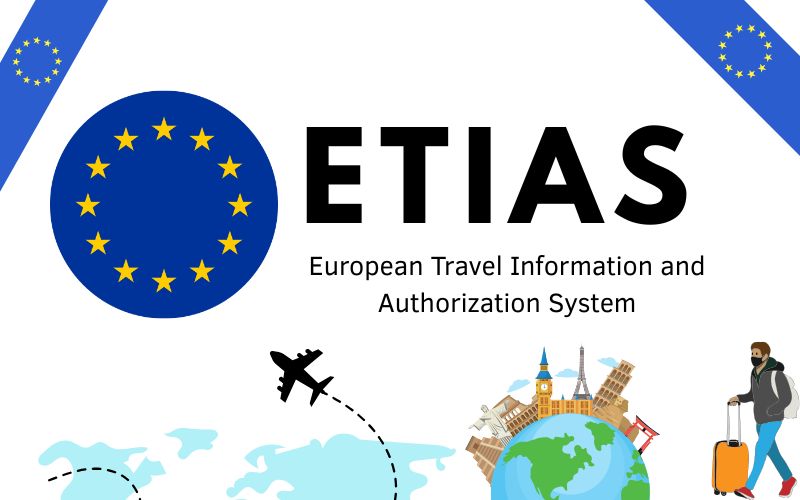The European Commission has announced ETIAS electronic travel authorization system is scheduled to commence on the last quarter of 2026. The European Union will inform travelers about the specific date for the start of ETIAS several months prior to its launch.
ETIAS travel authorisation is an entry requirement for visa-exempt nationals travelling to any of these 30 European countries for short stays. It is linked to a traveller’s passport. It is valid for up to three years or until the passport expires, whichever comes first.
Fee Increase
The application fee for an ETIAS travel authorisation will increase to EUR 20 from the previous EUR 7, following an adjustment put forward by the European Commission due to inflation and bringing the fee in line with other similar travel authorisation programmes, such as the UK ETA and the US ESTA.
Dual Citizens
According to the guidelines issued by the commission,
- If you are a dual citizen of any of the European countries requiring ETIAS or Ireland, you are exempt from ETIAS regardless of any other nationality you may hold. You must travel with passport issued by European country.
- If you hold passports from two visa-exempt countries, you will need to apply for an ETIAS travel authorisation. You can choose which passport to use for your application.
- Travellers with nationalities of a visa-exempt country and a visa-required country can decide which passport can travel. if you wish to use your passport from the visa-required country, you will need a visa instead.
In a Nutshell
- ETIAS does not give you the right to study long-term or to work in these countries. If you plan to stay in a European country requiring ETIAS for a longer period, you will most likely need a long-term visa.
- Travellers with a valid visa do not need an ETIAS travel authorisation.
- With a valid ETIAS travel authorisation, you can stay in the European countries requiring ETIAS for up to 90 days within any 180-day period.
- ETIAS issued to only one person. Family members, are required to have their own ETIAS travel authorisations.
Refusals
The ETIAS application will be refused if the applicant:
- used a travel document that was reported lost, stolen, misappropriated or invalidated.
- is considered to pose a security, illegal immigration, or high epidemic risk.
- fails to reply to a request for additional information or documentation within the given deadline or fails to attend an interview.
- has previously been refused entry and stay, accompanied with an alert recorded in the relevant information system.
An application will also be refused if there are reasonable doubts about the reliability and veracity of the data, statements or documents provided by the applicant.





















